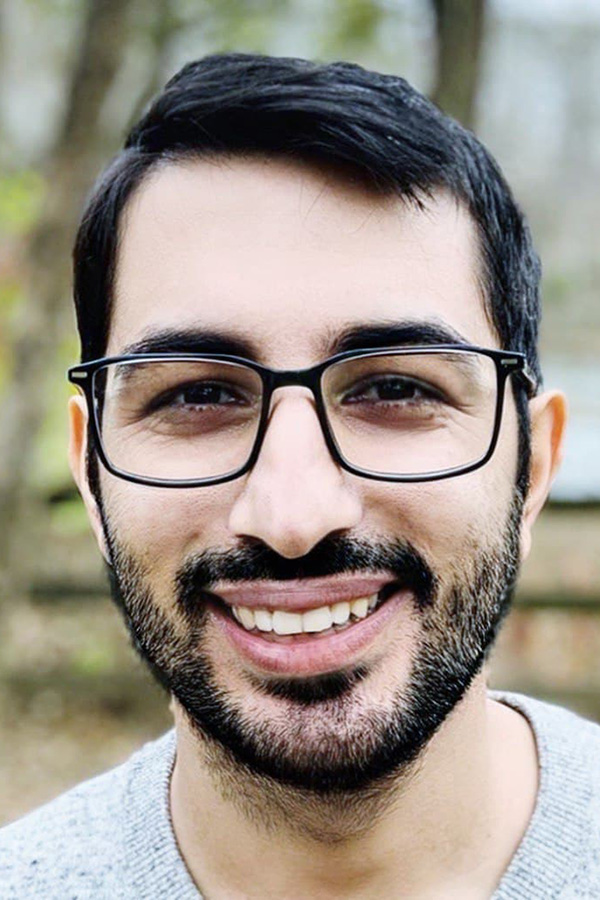Ph.D. student Mohammad Sendi won a mini-grant from the Foundation for Neurofeedback and Neuromodulation Research and Bio-Medical Instruments to support his work adding portable EEG brain scans to an existing study looking at the effectiveness of brain stimulation for patients with post-traumatic stress disorder.
Ph.D student Mohammad Sendi has won a grant from Bio-Medical Instruments and the Foundation for Neurofeedback and Neuromodulation Research to support his work applying neuromodulation to treat brain disorders.
Specifically, Sendi proposed adding portable EEG brain scans to an existing study looking at the effectiveness of transcranial magnetic stimulation (TMS) for patients experiencing post-traumatic stress disorder (PTSD). The goal is to better understand the functional changes in the brain from the stimulation, which induces a small, safe electrical current in targeted areas.
“Despite the significant impact of TMS in treating PTSD patients, an unresolved issue is that the response varies across individuals,” said Sendi, who is pursuing his doctorate in the Wallace H. Coulter Department of Biomedical Engineering at Georgia Tech and Emory University. “Quantifying transcranial magnetic stimulation’s functional and neurophysiological effects and their link to changes in symptom severity is an essential step towards understanding TMS’s neural mechanisms and developing more effective, and individualized, TMS therapies.”
The $3,000 mini-grant was designed to support projects with the potential of enhancing knowledge of basic processes involved in neuromodulation methods or understanding the clinical effects of those methods, especially in under-researched areas.
Sendi will integrate his portable EEG approach before, during, and after brain stimulation treatments that are part of the ongoing Grady Trauma Project at Emory. He’ll work with Sanne van Rooij, an assistant professor in the Department of Psychiatry and Behavioral Sciences at Emory, and Jeffrey Malins, an assistant professor in the Department of Psychology at Georgia State University.
“Optimizing TMS protocol and individualizing TMS treatment parameters can substantially benefit patient-specific therapy of PTSD and restore function and induce longer-lasting results,” Sendi said.
Latest BME News
Jo honored for his impact on science and mentorship
The department rises to the top in biomedical engineering programs for undergraduate education.
Commercialization program in Coulter BME announces project teams who will receive support to get their research to market.
Courses in the Wallace H. Coulter Department of Biomedical Engineering are being reformatted to incorporate AI and machine learning so students are prepared for a data-driven biotech sector.
Influenced by her mother's journey in engineering, Sriya Surapaneni hopes to inspire other young women in the field.
Coulter BME Professor Earns Tenure, Eyes Future of Innovation in Health and Medicine
The grant will fund the development of cutting-edge technology that could detect colorectal cancer through a simple breath test
The surgical support device landed Coulter BME its 4th consecutive win for the College of Engineering competition.








